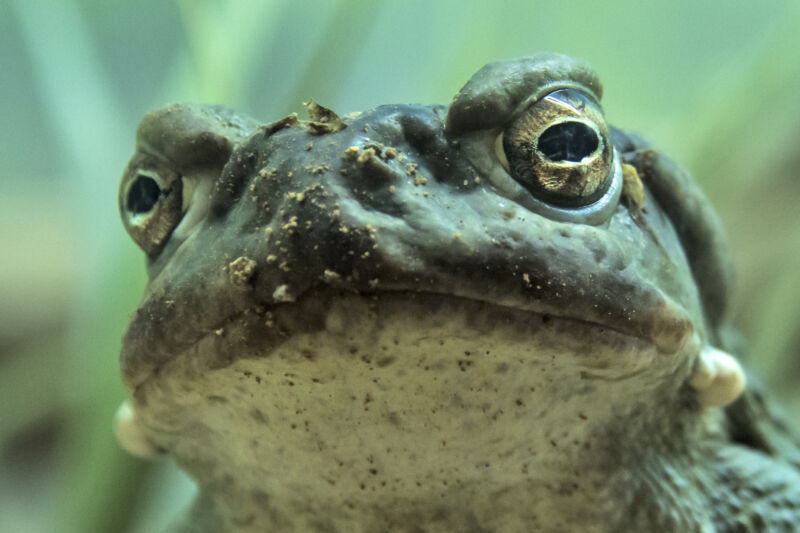Chemical tweaks to a toad hallucinogen turns it into a potential drug

Enlarge / The Colorado River toad, also known as the Sonoran Desert Toad. (credit: Mark Newman)
It is becoming increasingly accepted that classic psychedelics like LSD, psilocybin, ayahuasca, and mescaline can act as antidepressants and anti-anxiety treatments in addition to causing hallucinations. They act by binding to a serotonin receptor. But there are 14 known types of serotonin receptors, and most of the research into these compounds has focused on only one of them—the one these molecules like, called 5-HT2A. (5-HT, short for 5-hydroxytryptamine, is the chemical name for serotonin.)
The Colorado River toad (Incilius alvarius), also known as the Sonoran Desert toad, secretes a psychedelic compound that likes to bind to a different serotonin receptor subtype called 5-HT1A. And that difference may be the key to developing an entirely distinct class of antidepressants.
Uncovering novel biology
Like other psychedelics, the one the toad produces decreases depression and anxiety and induces meaningful and spiritually significant experiences. It has been used clinically to treat vets with post-traumatic stress disorder and is being developed as a treatment for other neurological disorders and drug abuse. 5-HT1A is a validated therapeutic target, as approved drugs, including the antidepressant Viibryd and the anti-anxiety med Buspar, bind to it. But little is known about how psychedelics engage with this receptor and which effects it mediates, so Daniel Wacker’s lab decided to look into it.
This post has been read 29 times!
